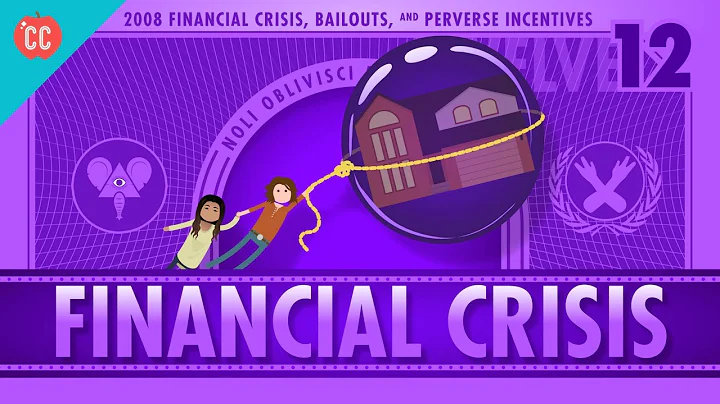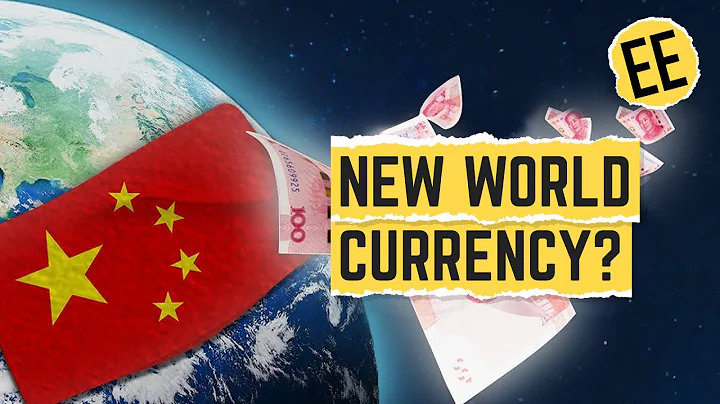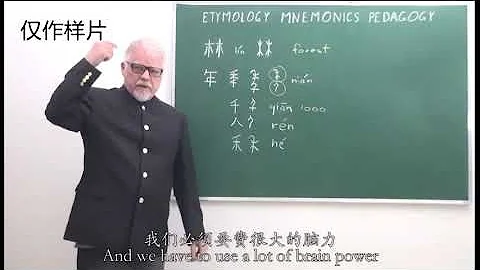One of the remarkable things about the global economic order since World War II has been the flexibility of governments in responding to severe crises. From stagflation and the collapse of the Bretton Woods monetary system in the 1970s, to the Asian financial crisis in the 1990s, to the global financial crisis of this century, the world's major economies have been surprisingly adept at finding ways to work together to address serious challenges.

This time, that lucky streak might finally be broken. The current litany of issues—the Russo-Ukrainian war, inflation, global food and energy shortages, the unwinding of U.S. asset bubbles, debt crises in developing countries, and the continuing impact of Covid-19-related shutdowns and supply chain bottlenecks— — is probably the worst of them all, not least because central banks cannot print wheat and gasoline. However, there is little indication that a collective response is needed to address these challenges. Global cooperation has never been more urgent, and it seems less likely.
Ironically, the failure of collaboration is largely the result of past successes. The world's past ability to manage crises, rise above chaos and restore global growth trajectories means that today more countries have become wealthy enough to exert influence and demand that their interests be taken into account. Others are pursuing territorial or ideological goals that they consider more pressing than immediate economic priorities. Therefore, it is almost impossible to find consensus. The result is that in this crisis, the world will be forced to adopt a series of competing and one-sided responses, rather than once again finding a way to deal with this challenge together.
This week’s World Trade Organization Trade Ministers’ Meeting in Geneva, originally scheduled for 2020 but postponed due to Covid-19, is a case in point. The WTO has 164 member states, and any agreement requires their consensus, so it is tied up. For example, member states are still struggling to approve a waiver of patent rights for Covid-19 vaccines - more than a year after it might actually help. They have also been negotiating for more than two decades to curb subsidies that contribute to destructive overfishing of the world's oceans. The WTO once broke new ground in setting trade rules and resolving disputes, but it has done little to address current supply chain challenges.

It is also unlikely to be an effective response to the global food crisis, as more than two dozen countries have enacted export restrictions to protect food supplies threatened by the collapse of Ukrainian and Russian grain exports. This week's meeting in Geneva could even lead to a tariff hike due to inaction: On Wednesday, the 1998 moratorium on cross-border e-commerce such as apple downloads and Netflix streaming will automatically expire, India and South Africa Its renewal is being blocked.
Of course, no one agency is indispensable, and in the past, when older agencies have proven less adept, governments have found new and creative ways to work together. Such was the case in the 1970s, when the world faced the closest analogy to today's challenges. The perfect storm of runaway inflation, the wars in Vietnam and the Middle East, the oil cartel driving up global energy prices, the collapse of the gold-backed monetary system under Bretton Woods, and Watergate in the United States. political scandal, creating a period of global instability and weak growth. Initially, governments were unable to fully cooperate to address these challenges. At that time there was an emerging literature on the "crisis of legitimacy" of Western capitalism.
However, after then-US President Richard Nixon ended the gold convertibility of the US dollar in 1971, the finance ministers of the major Western economies did make a concerted effort to try to establish a new monetary system.These efforts led directly to the first G-6 summit in France in 1975, where leaders of major industrialized countries were tasked with finding mutually reinforcing ways to revive their ailing economies. The group, which later became G-7 (and later became the G-8 when it joined Russia but was abandoned again after the annexation of Crimea in 2014), continues to provide a loose coordination structure for today's leading Western economies.
Decades later, the G20 was born out of a series of destabilizing financial crises, including the 1994-1995 Mexican peso crisis, the 1997-1998 Asian financial crisis and the 1998 Russian currency collapse. By then, important new economic powers had emerged, and G-20 was founded in recognition of the changing reality. The group includes countries such as China, India, Brazil, Russia, Mexico and Indonesia - expanding the club of rich countries to one more representative of the economies of the 1990s. Like the G7, the G20 began as a regular meeting of finance ministers and was elevated to an annual leaders' summit during the 2008 global financial crisis. Amid the crisis and its aftermath, the G-20 became the focus of global efforts to restore economic growth, helping jump-start the global economy through coordinated stimulus measures, working to strengthen financial regulation, and expanding the lending capacity of the International Monetary Fund.

To be sure, such collaborative efforts are rarely transformative. Both the Group of 7 and the Group of 20 lack decision-making authority and are more about pushing countries to adopt mutually supportive policies. The purpose of these organizations is usually not to create a grand recovery plan but to prevent things from getting worse. One of the G-20's key achievements during the global financial crisis was to obtain strong commitments from member states to avoid a protectionist response that would exacerbate the global economic slowdown - and these commitments were mostly kept. Even this modest achievement is far better than countries engaging in mutually exclusive or actively undermining each other's economic interests.
So, if WTO is bound by consensus, and if the G-7 and G-20 lack authority, which group or institution can save it this time? The mere raising of the question shows how difficult it is to coordinate a global response to the current series of crises. The United States and its allies are aggressively working to harm Russia's economy with the broadest-ever sanctions, and Russia is responding by blocking the shipment of Ukrainian grain through its Black Sea ports. This left the G-20 divided and powerless. U.S. Treasury Secretary Janet Yellen (Janet Yellen) called for Russia to be expelled from the organization and threatened to boycott the conference if Russia participated. She walked out of April's G-20 meeting in Washington as she addressed the Russian delegation, along with finance ministers and central bank governors from several countries.
The meeting ended without the usual communiqué indicating areas of agreement. However, removing Russia from the group is unlikely to happen; only Canada and Australia have formally joined the U.S. request. Indonesia, this year’s summit host, has invited Russia to the planned November meeting (and extended a one-time invitation to Ukraine, which is not a member). Russia's participation alone may be enough to deprive the G-20 of neutrality, but other members are unlikely to join any strategy premised on strengthening the global economy while isolating Russia. But some countries refuse to sever ties with Russia and focus on greater self-sufficiency to protect their economies from the kind of sanctions that Western economies have imposed on Russia.
These Western economies, through the G-7 and other forums, are more united than they have been in years, although they remain divided over how much to increase sanctions on Russia. This is no small achievement: G-7 economies still account for nearly half of the global economy and lead the way in the most cutting-edge technologies. The United States and Europe have largely moved beyond their steel, aluminum and aircraft trade disputes, which look trivial in the current environment.But the scale of the current challenge is beyond what the G-7 countries can handle alone. For example, the G7, with the support of more than 50 countries, has developed a potentially powerful plan to address food security issues by expanding financial and technical support in exchange for agreeing to waive export bans and other measures that could further distort global food markets. measures of the country. But India, which banned wheat exports last month, has so far blocked the move. New Delhi has also resisted other measures to free up food reserves for poorer countries in pursuit of greater self-sufficiency in agricultural production.

The Biden administration has been creative in trying to find solutions and build a coalition of like-minded countries. The U.S.-EU Trade and Technology Committee has been coordinating responses on issues such as export controls, data sharing and critical technology resiliency. During a visit to Tokyo last month, US President Joe Biden launched a new Indo-Pacific economic framework that includes Japan, South Korea and India. While details are vague, the new forum aims to promote progress in digital At last week's Summit of the Americas in Los Angeles, the United States unveiled its Partnership for Economic Prosperity in the Americas, which has a similar agenda but Latin America's second-largest economy after Brazil. The body did not attend the meeting: Mexican President Andres Manuel Lopez Obrador boycotted the summit after the Biden administration excluded Cuba, Venezuela and Nicaragua.
While admirably creative, none of these initiatives match the urgency of the moment. In previous crises, the world's major governments were able to put aside enough of their differences to come up with a robust response. is invisible. This breakdown in cooperation may be the most lasting and worrying impact of the current series of overlapping crises. So far, these disruptions have not caused significant damage to global trade as a whole: trade values have reached record levels in 2021. Record highs, although this year is slowing, and sectors such as food and energy have been severely disrupted.
But the current crisis makes it difficult to believe that the world's major economies, whatever their differences, are on the importance of economic growth and stability. are united and able to work together as best we can to achieve these goals
This time, no one is steering the ship
.





















